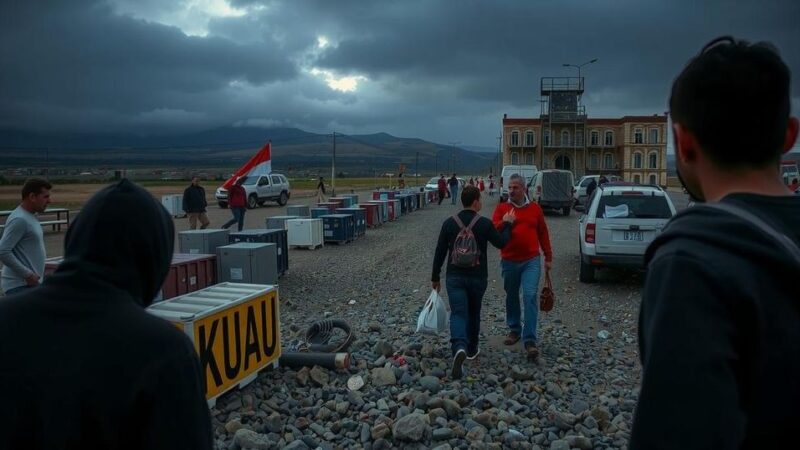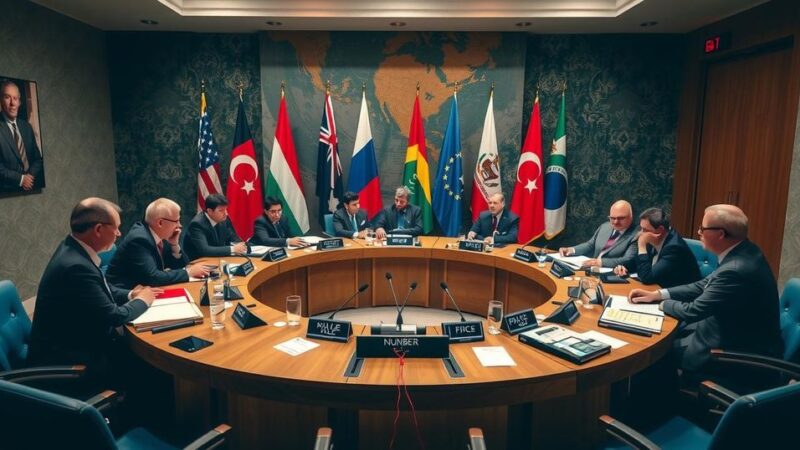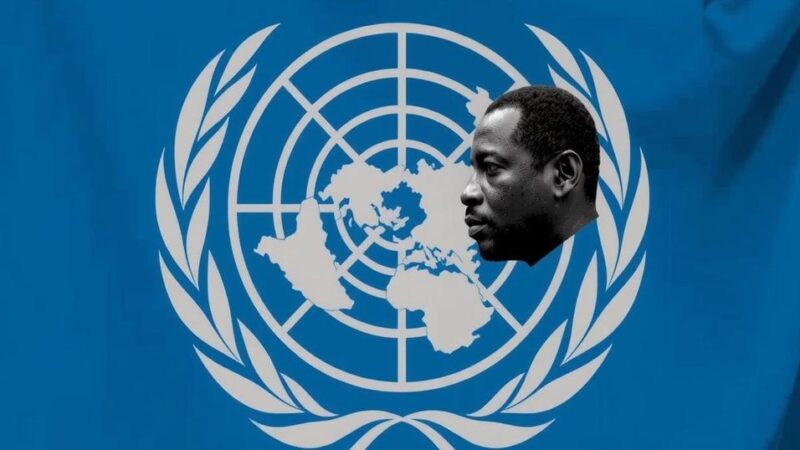President Mohamed bin Zayed al-Nahyan of the UAE recently met with President Biden, reinforcing U.S.-UAE ties amidst conflicts in Gaza and Lebanon. While they discussed various cooperative areas, their dialogue on Sudan’s civil war was limited, avoiding a direct acknowledgment of the UAE’s support for the paramilitary RSF, implicated in grave atrocities. This highlights a tension between strategic alignment and humanitarian principles in U.S. policy.
The recent visit of United Arab Emirates President Mohamed bin Zayed al-Nahyan to the White House highlights the strengthening ties between the United States and the UAE amidst ongoing conflicts in Gaza and the Israeli-Lebanese border. This meeting resulted in the announcement of new cooperation areas including artificial intelligence, space exploration, clean energy technology, and defense, with President Biden designating the UAE as a “major defense partner.” However, the discussions around the UAE’s involvement in Sudan’s civil war were notably less robust. Despite expressing a shared commitment to de-escalate the conflict, the joint communique touched only briefly on Sudan, allocating fewer than 250 words to an issue that has resulted in over 20,000 civilian deaths and displaced millions. The UAE’s role in supporting the paramilitary group Rapid Support Forces (RSF), linked to numerous atrocities, went unmentioned. The RSF has been accused of ethnic cleansing against non-Arab populations in Darfur, and the UAE has allegedly supplied weapons and intelligence to bolster this faction. With Sudan’s conflict having attracted foreign intervention, the UAE contends with competing geopolitical interests, particularly from Iran and Russia, who back opposing factions. As the U.S. positions itself alongside the UAE, a moderate Arab ally, it struggles to reconcile its strategic objectives with the humanitarian imperatives stemming from the conflict in Sudan. While promoting the UAE’s regional role as a counterbalance to Iran, President Biden also emphasizes the necessity for international powers to cease arming belligerents, calling for unified action against the violence in Sudan. Thus, the U.S. administration’s approach currently involves a delicate balance of fostering closer ties with the UAE while largely sidestepping a direct confrontation over its support for the RSF, a stance that appears discordant with the principles the U.S. professes to uphold in foreign engagements.
The conflict in Sudan has escalated into a prolonged civil war that has its roots in historical ethnic tensions and political strife. The paramilitary RSF, which emerged from earlier militia groups, has been implicated in atrocities against various populations. The involvement of foreign powers like the UAE, Iran, and Russia illustrates the geopolitical stakes at play in Sudan, turning an internal conflict into a broader proxy war with significant implications for regional stability.
In conclusion, while the visit of President Mohamed bin Zayed al-Nahyan signifies the strengthening of U.S.-UAE relations and mutual interests in various sectors, it also raises critical questions about the ethical implications of the UAE’s actions in Sudan. The lack of a clear call for the UAE to cease its support for the RSF, which has been linked to severe human rights abuses, presents a troubling dichotomy for U.S. foreign policy, seemingly prioritizing geopolitical strategy over humanitarian concerns.
Original Source: www.washingtonpost.com






